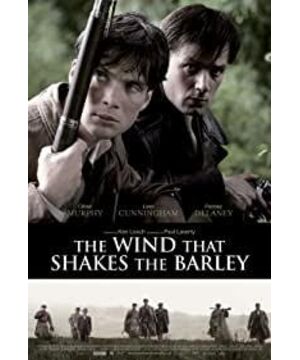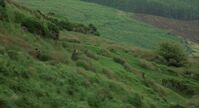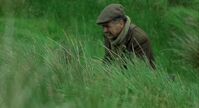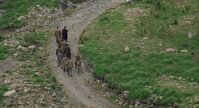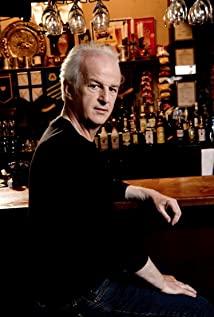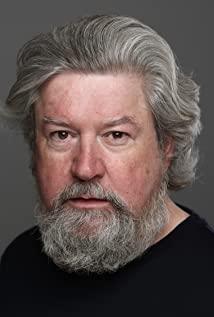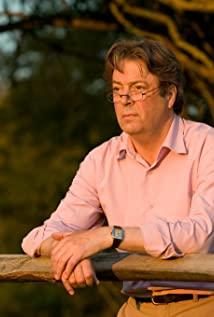Ken Loach shoots the same poetry as the title, treating the years before the Irish War of Independence and the Civil War into a line drawing, very realistic, but very general; very general, but not general. Refined, restrained, touching.
What moved me the most was not the climax of the film in the usual sense, such as the two shootings, as well as several ambushes and firefights, but the tit-for-tat dialogue. There is not much dialogue in "The Wind Blows the Rice Waves", and the exchanges about feelings and life are skipped in large sections, but when the characters have different opinions due to different political positions, the war of words is intense. A good political movie should have this demeanor, and the part the audience should know most about is why the conflict? What is the conflict? Unlike those commercial "blockbusters," the focus is always on conflict resolution. Sometimes, we watch too many Hollywood movies and literary films, indulge in individualistic feelings, and are about to forget that there is a thing called belief in this world.
The theme of "The Wind Blows the Rice Waves" is placed in our country, which is called the main theme. Because this story easily reminds people of the hard years of the CCP's underground party. And the film implicitly pays homage to the ideas we are most familiar with: that the national interest is above all else, the oath of allegiance is above all else. We have seen too many main themes, we are tired in the formalized domestic movies, and we may be numb to such a noble thought. For Westerners, this theme is unique. But Ken Loach is like a middle-of-the-road and peaceful Oliver Stone, awakening this great spirit with something very personal, looking back at Irish independence with a fraternal story.
The film tells about the year 1920, when a small group of young men join the Irish Republican Army to resist British repression. The protagonists Damien and Teddy are brothers and the main force in the army. When the peace agreement was won after the war, the brothers turned against each other because of political differences, and the tragedy ended in the end. The story after the curtain was not ended until April 1923. The Republican Army supported by Damien finally fell. The ending ended with the arrest of 10,000 people and the murder of more than 50 people. The government army represented by Teddy won the civil war. So history is the real tragedy. Although in the film, Teddy's position was at a disadvantage for a time, his pessimistic and short-tempered attitude was the most rational in the angry Republican Army: As far as they're concerned ,Ireland is this tiny dot in a much bigger picture. Do you seriously think they'd let him give the green light to nationalists in India and in Africa and the whole fucking empire by giving us complete independence? (In their {UK} view Ireland is just a tiny part of the world Little bit, do you really think they will give us full independence and thus give the green light to India, Africa and the entire F* Empire???)
This is what I like about Ken Loach's films because his films are not passive and the characters have One's own choice, a clear point of view, even if one succumbs to fate, life is positive. Ken Loach would hint at his attitude in the character, and Teddy's statement almost foreshadowed the final demise of the Republican Army. War is indeed cruel, because the ending will not be chosen according to reason.
There are two shooting scenes in "The Wind Blows the Rice Waves" which are the turning point and the climax respectively, and the sensation is also the most obvious. There is also a case where the ammunition was dissipated by the Republican army after a sneak attack, only to find that the British army was wreaking havoc at Damien's girlfriend's house, but they were powerless to stop it. Personally, I feel that the drama is a bit heavy (there is foreshadowing, suspense, and exaggeration), but there is no straightforward narrative.
The most special point of the film is the picture, which is as poetic as the title. A lot of scenery: the wind blows over the rice waves, the wind blows over the grassland, the wind blows over the mountain tops... The mountains stretch, the green grass is green, and the simple countryside is spotless. Deserted towns, simple farmhouses, lonely stone houses on the grasslands, at best self-sufficient farms, basically all the exterior scenes. The interior scenes mostly stay in narrow bars, attics, farmhouses, prisons, and cinemas, where the characters are complex, but the space is cramped. Such a scene is very suitable for a pastoral love drama, but Ken Loach is full of love-hate parting of the Revolutionary War.
The most concise expression, without the slightest lack of power.
We have a stronger history, like a tree full of peaches, waiting to be picked up by future generations.
If the older generation of Communist Party members who shed their blood for the revolution were lucky enough to see today, they would be relieved. After all, they lived through a glorious era and an era of heroes. There is a sense of righteousness and pride that we have never experienced in the Peace Century~~~~~
View more about The Wind that Shakes the Barley reviews


